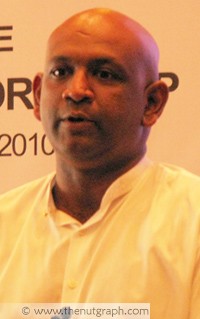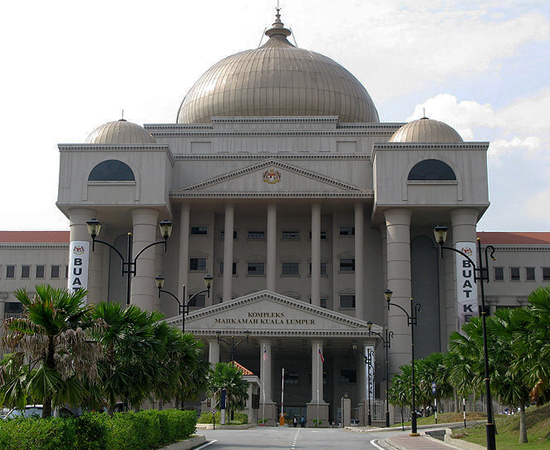By Hilary Chiew
COMMENT In the last three weeks, Sarawak was abuzz with news of a particular climate change mitigation mechanism called REDD (Reducing Emission from Deforestation and Forest Degradation in Developing Countries).
First, a news article by Reuters informed that an Australian carbon trading company has signed a carbon offset deal with nine tribal leaders that would purportedly preserved more than 100,000ha of forests in the state.
It would be a 50-50 deal, according to the developer of the carbon offset scheme, Shift2Neutral. About 10,000 people from the 24 villages stand to be paid for keeping their forests intact for the next 20 years.
The firm said it will work with the tribes and a local NGO to help manage the forest, survey the area and access the carbon stored in the trees and soil.
Last week, the first carbon offset and forest conservation workshop was held in Kuching, the state capital, to familiarise the timber-related parties with carbon offset and REDD.
Key players in the commercial logging sector listened intently to speakers on how they can participate in REDD activities.
Director of Forestry, Sarawak, Len Talif Salleh said the state is interested in the implementation of REDD and discussion has already been held with the Sarawak-chapter of the Wildlife Conservation Society (a US-originated non-governmental organisation) to look into the potential of REDD in the Anap Muput Forest Management Unit.
Also, Sarawak would require capacity building, technical assistance and financial support for a number of enabling activities to participate in future REDD activities.
Ultimate saviour
Regarded as a vital part of the global fight against climate change, the United Nations Framework Convention on Climate Change (UNFCCC) agreed to negotiate new policy approaches and positive incentives to reduce emissions from deforestation and forest degradation (REDD).
REDD, which has since been expanded to include a more comprehensive approach and renamed REDD-plus, is envisioned as a forestry sector solution to carbon emissions from logging and forest- clearing activities that are responsible for nearly one-fifth of global emissions.
It has been touted as the “ultimate saviour” against the industrial logging scourge across the equatorial belt that had enriched a handful of timber tycoons and political elites at the expense of the environment and human rights violation of forest-dwelling communities.
However, environmental activists who had campaigned tirelessly against unsustainable industrial logging over the last quarter century found an added reason to support their cause – in the battle to save the world from the impacts of climate change, the embattled tropical rainforests could be saved.
Furthermore, the threat against the tropical rainforests has a relatively new enemy. In the last decade, degraded tropical forests were intensely targeted for conversion into oil palm plantation, including the carbon-rich peat swamp forests partly due to depleted timber stocks and the growing demand for palm oil, which is the cheapest vegetable oil in the world.
In response to the realisation that their forests are vital tools in combating a warming earth, a group of developing countries known as the Coalition of Rainforest Nations demanded that compensation for the carbon stored in their forests should form part of the agreement of the United Nations climate change deal that was supposed to be achieved last December at its 16th Conference of Parties in Copenhagen
The coalition includes Brazil, Costa Rica, Colombia, the Democratic Republic of Congo, Indonesia, Malaysia, Mexico, Papua New Guinea and Peru.
But as we all know, the devil is always, always, in the details.
Initially, REDD was designed as a mere mitigation tool void of land tenure consideration and human rights perspectives.
The indigenous peoples’ movement has criticised it for its lack of recognition of their rights over the land and the fear that any “value-adding” (in this case, carbon sequestration role of forests to climate change) to the resource would increase existing land conflicts between communities and drivers of deforestation such as industrial logging and large-scale plantation.
The International Indigenous Peoples Forum on Climate Change (IIPFCC) lobbied hard at the UNFCCC meetings to have the rights of indigenous peoples recognised and rewarded for they were and continue to be the communities that had fought to defend and manage their ancestral forests for centuries, which turned out to be a service to all humanity.
Financing REDD
While curbing deforestation has been accepted as one of the key solutions to halt climate change, to reverse the trend would need huge financing to preserve this precious resource. And it has proven to be the most contentious area in the negotiation. Should it be financed by public funds (from developed nations as part of their climate debt payment) or the carbon market?
Some indigenous peoples’ groups are against the commodification of carbon in the trees and soil as against their sacred view of the universe.
Parties to the UNFCCC are still divided over the source of funding and the type of activities (for example, reforestation that include monoculture timber plantation) that should be supported by REDD. Concerns over leakage (where one area is spared of the chainsaw only to have the loggers move into another area that is not covered by REDD) and permanence (where the period of REDD-protected forests expires) are also being deliberated at the talks.
One of the main criticisms by certain green groups against REDD is that it would ironically reward polluters (logging companies that had destroyed the forests in the first place and released the carbon into the atmosphere) that would now be compensated for not extracting timber for yet another round or convert the land into plantation.
They find it hard to swallow that instead of adopting the “polluters pay principle”, the reverse is happening.
Confusion in the media
As the negotiation continues, REDD and its potential in the carbon credit market has generated considerable excitement among the business and media sectors.
Along with it confusion arises. Many had been confused by the voluntary and mandatory carbon market. Under the UNFCCC, the Clean Development Mechanism (CDM) under the Kyoto Protocol was developed to assist Annex I parties (developed countries that are supposed to reduce 5.2% of their collective emission level from the 1990 base year between the first commitment period of 2008-2012) to partially meet their reduction commitment.
In line with the principle of the UNFCCC, CDM promotes sustainable development in developing countries through finance and technology-transfer from rich nations.
Credits generated through CDM projects, such as capturing methane from palm oil mill effluents to power the boilers in a palm oil refinery, are traded in the mandatory market.
The voluntary market is literally a free market where companies developed carbon offset projects with some forms of verification and sell those “verified” credits at the marketplace to, say, someone who wants to compensate for his carbon footprints in his personal capacity.
However, media reports have often blurred the line between the two markets and worst, any forest-related mitigation project such as the one reported by Reuters mentioned earlier are associated with the UNFCCC’s REDD-plus mechanism that is NOT operationalised yet.
‘REDD’ herring
Critics of CDM say developed countries are enjoying the cheap options of offsetting their emissions while delaying the relatively more costly transition to low-carbon technologies that they have to take to curb emissions at home.
Many feel the aim of reducing emission has been perverted by the market mechanism approach that is more concerned about cost-effectiveness than promoting clean development technology.
On the local front, the interests in REDD from the timber/plantation sector in Sarawak will definitely invite criticisms. It is well known that logging practices in Sarawak are unsustainable and poorly regulated owing to the political patronage system that the entire industry has operated under since the beginning of commercial logging.
Environmental concerns aside, Sarawak’s treatment of its indigenous communities is possibly one of the most appalling in the world. Land conflicts stretching from Lundu in the west to Lawas in the east of the state now account for more than 150 cases that had been filed in the High Court of Sarawak.
Despite several landmark decisions that upheld the native customary rights (NCR) of Sarawak natives, the state remains indifferent.
As the chant of the IIPFCC’s activists in the various UNFCCC meetings – “No rights, no REDD” – rings in my mind’s ear, it would be near impossible for Sarawak to participate in any form of REDD scheme unless and until it commits to a total reform of its forestry and land rights practices.
And as it has always been, the much criticised and recalcitrant Sarawak logging industry is also proving to be a hindrance for Malaysia to benefit fully from the mechanism. The number (close to 50 and counting) of provisional leases called the Licence for Planted Forests that the state government had issued would mean that no forested areas in Sarawak would be spared the chainsaw, making Malaysia highly susceptible to the problem of leakage.
The state has often mischievously misled the public by regarding its plantation forests scheme as reforestation programme.
If Sarawak truly wants to help the global fight in climate change, it should cancelled all these licences, recognise NCR and implement genuine reforestation in highly degraded forests that would enhance its forest carbon stock. Only in that way, it will be able to redeem itself through REDD-plus.
Hilary Chiew is a socio-environmental researcher and freelance writer based in Kuala Lumpur.




 The two majors were alleged to have
The two majors were alleged to have  ppointed with the Home Ministry, Defence Ministry and armed forces which have yet to give assurance of safety,” said Surendran.
ppointed with the Home Ministry, Defence Ministry and armed forces which have yet to give assurance of safety,” said Surendran.


 By Stephanie Sta Maria - Free Malaysia Today
By Stephanie Sta Maria - Free Malaysia Today According to him, settlers are often herded into hastily built PPR flats, which are haphazardly scattered around Batu with no consideration given to the appropriateness of its location. Most of these flats, he added, suffer major infrastructural and environmental problems, which stretch beyond an MP's capacity to resolve.
According to him, settlers are often herded into hastily built PPR flats, which are haphazardly scattered around Batu with no consideration given to the appropriateness of its location. Most of these flats, he added, suffer major infrastructural and environmental problems, which stretch beyond an MP's capacity to resolve. The other bone that Tian Chua has to pick with the government is the latter's move to shove development down Batu's throat at the expense of its rich cultural heritage.
The other bone that Tian Chua has to pick with the government is the latter's move to shove development down Batu's throat at the expense of its rich cultural heritage. Tian Chua is further rankled over DBKL's insistence on shouldering the full responsibility of town planning and ostracising Pakatan Rakyat MPs in KL from this process.
Tian Chua is further rankled over DBKL's insistence on shouldering the full responsibility of town planning and ostracising Pakatan Rakyat MPs in KL from this process.









 N Surendran, Tharmendran's lead counsel, said the application was made yesterday and they hope it will be heard in the High Court tomorrow.
N Surendran, Tharmendran's lead counsel, said the application was made yesterday and they hope it will be heard in the High Court tomorrow.


